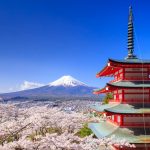
One of only two cities to endure the horrors of an atomic bomb, Hiroshima’s near-unique position also stands as a testament to the shifting role of nuclear weapons as deterrents, rather than weapons of war. The nuclear bombs represented the end of Imperial Japan’s role as an independent military power in northeastern Asia and heralded one of the key pillars in China’s eventual rise.
The bombing of Hiroshima also played strongly into the pervasive pacifist culture in modern Japanese politics, though that sentiment is waning. Under current Prime Minister Shinzo Abe, Japan has aggressively pursued a significant expansion of its military capabilities—especially its navy—as Tokyo re-interprets Article 9 of the Japanese constitution, which limits the Japanese military power to self-defense. While the Japanese do not forget the horrors of Hiroshima, they see perhaps more clearly than any other U.S. ally the shift currently under way in Washington, and are among the most prepared to step into the space left behind when the Americans retreat from their role as security guarantor.




